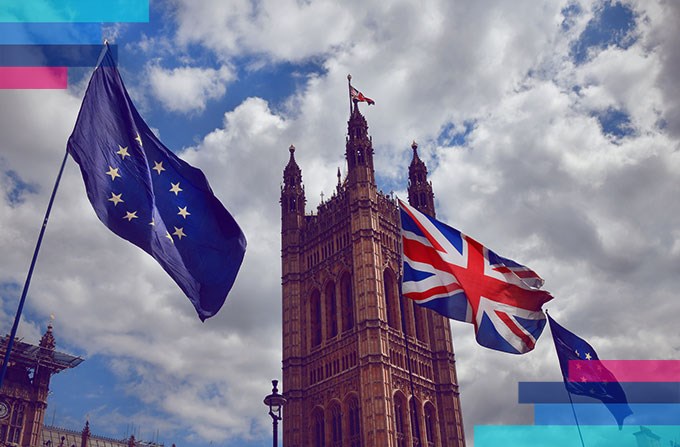
Brexit became a reality as the United Kingdom officially left the European Union on the night of January 31 to February 1, 2020. In turn, on December 31, 2020, the UK’s transition period ended, during which travel between the countries of the European Union and the United Kingdom continued under the existing conditions. How to travel to/from the United Kingdom after January 1, 2021? What has changed for European Union citizens concerning the rules on traveling to England, Wales, Scotland, and Northern Ireland?
What has changed after Brexit?
As a result of Brexit, the United Kingdom ceased to be a member of the European Union, and thus left the European single market offering free movement of people, among other things. However, it should be remembered that the United Kingdom never joined the Schengen area, so even before Brexit EU nationals traveling to this country had to undergo border control or passport control at the airport. However, to cross the border, no matter the reason for travel (a tour, business trip, work or school) showing the ID card would suffice.
Regardless of the reason for travel, Brexit has changed the procedures for crossing the UK border by citizens of the European Union, Iceland, Liechtenstein, Norway, and Switzerland including short-term tourist trips.
How to travel to England after Brexit?
From January 1, 2021, citizens of EU countries must present an identity document to cross the UK border. Attention! From October 1, 2021, the only valid document to travel to the United Kingdom for any reason is a passport!
As a result of Brexit, citizens of the EU countries, the European Economic Area (Iceland, Liechtenstein, Norway) and Switzerland are subject to the visa requirement. However, in some cases, a visa is not required - it all depends on the reason for travel.
- Tourism & visit
If you are going to the United Kingdom for a short period (up to a maximum of 6 months), for example, to visit London or your family or friends, you only need to bring your passport. In this case, a visa is not required. - Business travel
If you are going to the United Kingdom for business purposes for a short period, for example on a business trip, meeting, conference, etc., you only need to bring your passport. In most cases when traveling on business, a visa is not required if the total duration of stay in the territory of the United Kingdom does not exceed 6 months. - Traveling for the purpose of work or study
If you are going to the United Kingdom to work (both for your employer and as part of your own business activity), for an internship or to study, you will need a visa in addition to your passport. Please read the visa conditions on UK government websites before departure.
Important! Due to the epidemic situation in the world, in each of the above cases, the British authorities require additional documents from persons arriving in the United Kingdom. If you have a ticket purchased on eSky, you can check all relevant information by logging into your account. It is also available on the information and required travel documents page.
Travel of EU citizens living in the UK
The UK is home to a large number of European Union citizens who have settled in the country thanks to the EU's principle of free movement. Due to Brexit, such persons will need to get settled or pre-settled status by June 30, 2021, in order to be able to legally reside in the United Kingdom. As for traveling, residents or pre-settled residents may cross the UK border using an ID card until December 31, 2025. After this date, in order to enter the territory of the United Kingdom, the resident will have to present a passport. Of course, settled or pre-settled status means that you do not have to apply for a UK visa.
How to travel in the United Kingdom after Brexit?
Brexit did not significantly affect the issues related to traveling around the United Kingdom and residing in this country. Both a national driver’s license and the European Health Insurance Card are valid under the existing rules. However, the British government recommends taking out travel insurance, which will also cover the cost of private medical visits. It should also be remembered that neither the EHIC nor the travel insurance covers the costs of planned treatment and procedures in the United Kingdom.
However, the UK’s split from the European Union will affect roaming charges. Until the end of 2020, operators could not charge additional fees to people who used mobile phones while traveling in the UK, which is now legal, so you should ask your mobile operator about the UK roaming rates before your travel.
Crossing the Irish border
What has changed due to the UK's withdrawal from the European Union in terms of travel between the Republic of Ireland, which is a member of the European Union, and the UK’s Northern Ireland? By January 1, 2025, nothing will change with regard to crossing the border with Ireland. After this period, the Northern Ireland Assembly will be able to unilaterally resign from the negotiated conditions or extend the existing border crossing law and customs policy for another four years.



